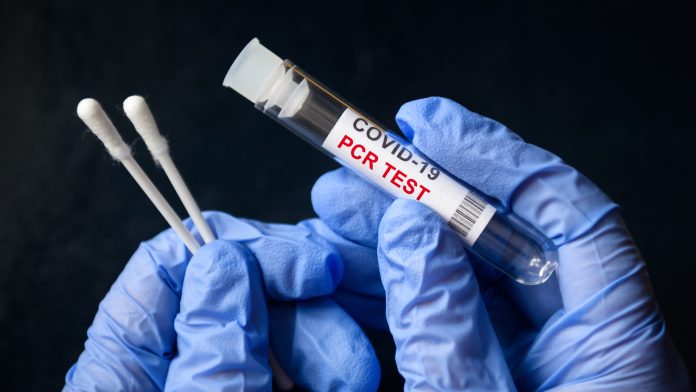
US researchers have developed a cutting-edge COVID-19 PCR test that identifies infection and the specific variant of the disease.
Created by researchers at ResearchPath LLC and collaborators at Rutgers University, the novel COVID-19 PCR test employs molecular beacons that can not only diagnose COVID-19 infection but also determines the specific variant of the virus. This groundbreaking diagnostics advancement may enable healthcare professionals to rapidly identify the most effective course of treatment for a patient depending on their variant, helping to save lives.
Sanjay Tyagi, PhD, the lead investigator from the Public Health Research Institute, New Jersey Medical School, Rutgers University, commented: “It is extraordinary to see that SARS-CoV-2 was not a monolithic infection with a predictable set of clinical features, but rather an ever-evolving disease for which the different strains produce unique clinical features that affect testing, symptoms, and even which organ systems can be attacked.”
The team’s research is published in The Journal of Molecular Diagnostics.
What can we learn from SARS-CoV-2 variants?
Determining which specific variant an individual has can reveal an array of vital information, including the length of the incubation period, duration of the contagious period, transmissibility, pathogenicity, and even changes in the predominant symptoms.
Information on different strains of COVID-19 is predominantly reported by the international community or a few states with sizeable populations that conduct genetic sequencing. However, despite deep sequencing being able to identify particular mutations in a sample accurately, it is very costly, time-consuming, and requires specialised equipment. Nevertheless, the knowledge acquired about the type of variant provides essential information for health experts, policymakers, and the public.
Co-investigator Ashley Hill, MD, ResourcePath LLC, said: “Knowing that a highly contagious and dangerous strain is emerging in a local community could inform policymakers to initiate safety measures to limit spread. It can also serve as an early warning system for healthcare systems that need to plan for surges in ER visits and ICU care. Knowing which strain has infected a person can also help determine which treatments would be most beneficial.”
Designing a new COVID-19 PCR test
To create their new COVID-19 PCR test, called the Rutgers-RP RT-PCR assay, the researchers employed real-time PCR probes pioneered by Rutgers University that are already implemented worldwide for an array of purposes. The test utilises molecular beacons to identify particular genetic mutations of SARS-CoV-2 that have been shown to increase immune escape, avoid neutralisation, and increase transmissibility. Molecular beacons are hairpin-shaped molecules designed to bind to a specific mutant sequence, avoiding wild-type sequences that usually differ by a single nucleotide.
For their investigation, the team selected nine mutations for testing, with the beacon for each having different coloured dyes. All of the original variants of concern (VOC), such as alpha, beta, gamma, delta, and Omicron, has a unique combination of these mutations, and when the beacon attaches to its target molecule, a distinct colour is detected by the assay.
Each beacon was examined individually to confirm its specificity to its assigned mutation. All of the beacons were then amalgamated into a multiplex assay and tested by the new COVID-19 PCR test on positive patient samples that had previously been assessed with deep sequencing. Two samples were identified as the Alpha variant, two as the Epsilon variant, and eight as the Delta variant. The novel COVID-19 PCR test fully correlated with the results from deep sequencing, achieving a sensitivity and specificity of 100%.
Moreover, the team noted that the test is extremely adaptable. During the emergence of the Omicron variant, they were able to design a beacon in under a month that identified a mutation unique to Omicron that is vital for immune evasion. The researchers identified the Omicron variant in 17 of 33 additional patient samples that had been previously tested, achieving an accuracy of 100%.
Lead author of the study, Ryan J. Dikdan, BS, Public Health Research Institute, New Jersey Medical School, Rutgers University, said: “The tools we developed to track and identify new variants will be useful for this pandemic and for any unforeseen viruses or pathogens that may arise going forward.”
The investigator concluded: “The SARS-CoV-2 virus is not done with us yet. We desperately need a worldwide monitoring system for the inevitable emerging strains that could be even more contagious or deadly. The Rutgers-RP RT-PCR variant assay could be widely deployed in laboratories around the world right now to monitor all the known variants of concern. The assay will be updated with new primer/probe sets for each new important variant that emerges.”
























